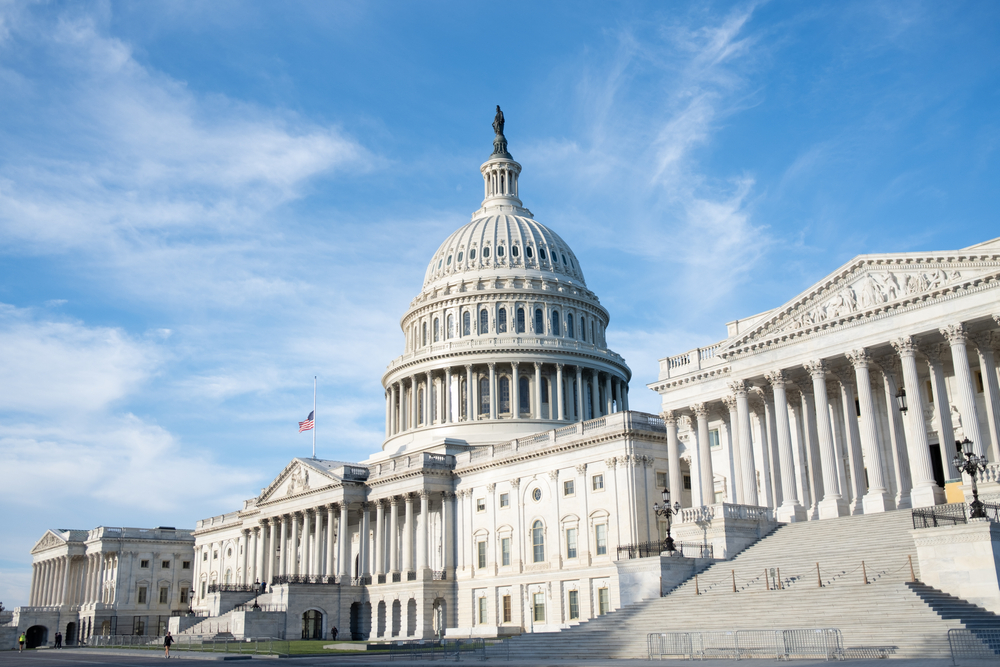It is no surprise that indexed ETFs and funds have been taking market share from active mutual funds in recent years.
In fact, indexed ETFs and funds accounted for 43% of long-term funds by the end of 2021, up significantly from 21% at the end of 2011, according to data from the Investment Company Institute (ICI).
One of the concerns in the financial industry is that the rise of index-linked investing has resulted in less scrutiny of company boards by shareholders, a function typically associated with active managers.
However, it is worth noting that at present, this risk may be overstated. Despite the rapid growth of ETFs, indexed products still owned only 16% of the total US stock market cap, as at the end of 2021, according to the ICI data.
As shown in Figure 1, 14% of stock ownership is with active mutual funds, and the remaining 70% with hedge funds, pension plans, insurance firms and individuals, all of whom can play important roles in corporate oversight and shareholder activism.
Figure 1
Source: Investment Company Institute and World Federation of Exchanges. Data as of 31 December 2021
Expanding corporate oversight
Although the ownership share of indexed products in US stocks is relatively low, as ETFs continue to grow, the low-profile role that ETF managers have had in corporate oversight may change.
In the future, large ETF managers like BlackRock, Vanguard and State Street Global Advisors (SSGA) will likely come under pressure to use their voting power to advance specific agendas, and to make their shareholder voting guidelines transparent.
BlackRock already makes its proxy voting guidelines publicly available. Those guidelines include:
A view that environmental sustainability or social dependency should be incorporated in corporate strategy, e.g., “It is our view that well-run companies, where appropriate, effectively evaluate and manage material sustainability-related risks and opportunities as a core component of their long-term value creation for shareholder and business strategy.”
A commitment to requiring disclosures on sustainability risk, e.g., “Where a company has failed to appropriately provide robust disclosures and evidence of effective business practices, BIS may express concerns through our engagement and voting.”
These guidelines reflect the broader shift in corporate America toward climate sustainability practices and disclosures. However, it also opens up ETF managers to political intervention and scrutiny, and the industry has already started to see signs of this happening.
First signs: ESG
The first and most visible area of political intervention in the ETF space is with ESG ETFs. In December 2022, state senators from energy-reliant Texas questioned the use of ESG factors in investing.
Earlier that month, Florida’s CFO announced the state would freeze about $2bn in investments managed by BlackRock, because of the firm’s use of ESG standards. Similar pressure is likely to be exerted on the other side of the aisle by Democrats who want to see asset managers use their stock ownership to advance ESG goals.
As the political stakes increase, the largest asset managers will be under pressure to clarify their individual position on these issues. Vanguard announced on 7 December 2022 that it was withdrawing from the Net Zero Asset Managers industry alliance. The initiative is an international group of asset managers who are committed to the goal of net-zero greenhouse gas emissions by 2050 or sooner.
In its statement on the issue, Vanguard said it was still committed to helping investors navigate the risks of climate change to long-term returns. According to its statement, it decided to withdraw from NZAM so it could speak independently on the issue.
Trends to watch in 2023 and beyond
Considering the increased scrutiny on how ETF managers vote, it is likely there will be significant developments in this area. BlackRock has taken the lead with its Voting Choice initiative. In this programme, BlackRock’s institutional clients that are invested in their index-linked funds will have the opportunity to participate in shareholder voting decisions where legally and operationally possible.
As of the end of Q3 2022, BlackRock had $3.8trn inindex-linked equity products, with $1.8trn of those assets eligible in BlackRock’s voting choice programme.
In this programme, eligible institutional investors can choose from a variety of options including exercising control over their voting, voting selectively on some issues or relying entirely on BlackRock for all their voting decisions. In 2023 and beyond, it is likely that other asset managers will also have to announce similar programmes.
Another trend to watch in 2023 will be the potential launch of more “anti-ESG” or politically themed ETFs.
If ESG and other investment themes continue to get politicised, investors may start using their investment choices as a form of political or social expression. This will encourage smaller ETF issuers to launch products that give investors more ways to express their political opinions through investing. Table 1 shows some examples of ETFs that already do this.
Table 1: Examples of ETFs with anti-ESG or anti-liberal mandates
ETF TickerSponsorInceptionDescriptionGod Bless America ETFYALLGod Bless10/10/2022Does not hold companies that emphasised politically left and/or liberal political activism and social agendas at the expense of maximising shareholder returns.Point Bridge GOP Stock Tracker ETFMAGAPoint Bridge Capital9/7/2017Tracks the performance of companies whose employees and political action committees are highly supportive of Republican candidates for election.Strive 500 ETFSTRVStrive Asset Management9/15/2022Tracks the 500 largest US publicly traded stocks. Intentionally does not pursue any ESG objectives nor align with the objectives of the Paris Agreement. Corporate Governance practices include voting proxy shares and proactively engaging with management teams.
Source: CFRA Research; Data as of 21 December
As the ETF industry continues to grow in the US, the politicisation of ETFs, particularly in the ESG category, could increase. In response, we could see a proliferation of ETFs that allow investors to express their social or political opinions.
We are also likely to see more changes in the way ETF managers provide proxy voting options to their end investors.
Aniket Ullal is head of ETF data and analytics at CFRA
This article was originally published on ETF.com
Related articles





